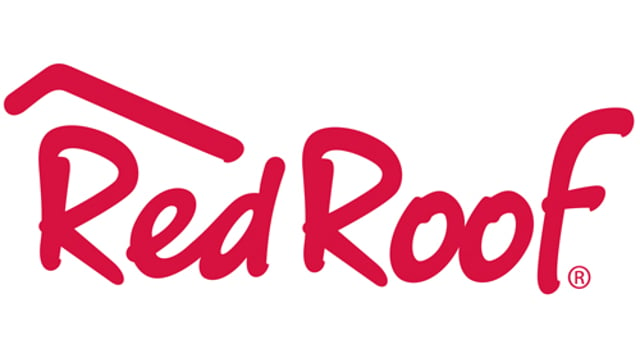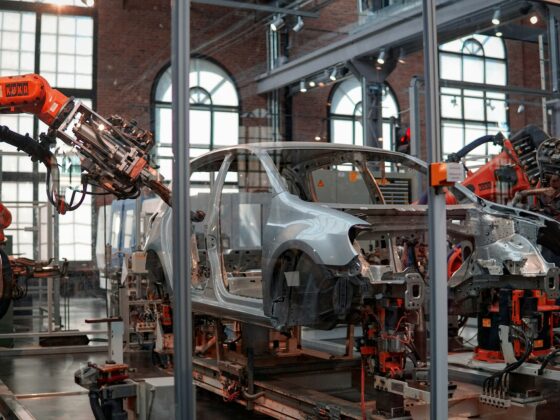Since the release of ChatGPT to the public in November 2022, the potential of artificial intelligence has been a hot topic. While the discussion around it is sometimes overhyped, there are already AI-powered solutions on the market that go far beyond basic AI actions to help hoteliers address real business challenges.
In this article, we explore the different types of AI, how it’s being thoughtfully incorporated into hotel technology, and its impact on the hospitality industry.
What is artificial intelligence?
Artificial intelligence or AI refers to the ability of computer systems to perform tasks that require human intelligence, such as analyzing data, recognizing patterns, making predictions, solving problems, and understanding human language.
Depending on the task, AI employs different models and algorithms, often categorized hierarchically. Below we’ve broken down some of the most popular types used in hospitality.
Generative AI
If the goal is also to interact with humans using natural language and to create content (texts, code, images, etc.), this ability is known as generative AI, and it’s a typical feature of tools such as ChatGPT and Gemini. Generative AI models are trained on vast amounts of data to understand and replicate patterns to generate new, similar content.
Machine learning
Machine learning (ML) analyzes a broad range of data to identify patterns and correlations in data. When the data involves human language, machine learning uses a series of techniques and algorithms called natural language processing (NLP) to create models that can make predictions or decisions without being explicitly programmed.
Causal AI
Causal AI aims to understand and model cause-and-effect relationships. By understanding the root cause of issues, causal AI offers even deeper insights for strategic decision-making, enabling more accurate predictions and suggestions.
12 ways AI is impacting hotels
The industry is starting to see exciting advancements in which AI is being incorporated into hotel tech. Here we’ve broken down 12 ways that AI technology is having the greatest impact on hotel operations.
Guest experience
Managing and personalizing the guest experience was once a time-consuming and tedious process. With AI, hotels can reduce manual tasks, focusing their efforts on strategic initiatives.
1. Reputation management
Responding to online reviews attracts higher ratings and improves ranking in search engines. AI-driven reputation management tools simplify this process by aggregating reviews from different channels (like Google and Tripadvisor) into one spot. However, responding to each review can be quite time-consuming, especially if you want to personalize replies and avoid boilerplate formulas.
To speed up the process further, reputation management tools have started to incorporate generative AI tools that write drafts of personalized responses following simple prompts such as “reply in a professional and constructive manner.”
For example, if a guest leaves this negative review:
The service at the hotel’s restaurant is terrible. The servers act as if they are doing you a favor. For such a nice hotel, I would expect better service and not have to wait 10 minutes to get a server’s attention. Do better.
AI will quickly generate a response:
“Dear [guest name], Thank you for your feedback. We apologize for the poor service you experienced at our restaurant. This is not the standard we strive for, and we are addressing this with our team to ensure it doesn’t happen again. We hope you’ll give us another chance to provide the excellent service you deserve. Please contact me directly if you have any further comments or concerns.”
The aggregation of reviews saves hoteliers time jumping between platforms, and the ability to generate responses allows hotels to speed up the process while still being able to edit and personalize each reply.
2. Sentiment analysis
In addition to responding to individual reviews, it’s important to have a bird’ s-eye view of guest feedback, including what words they use most often to describe their stay and common pain points or areas of praise.
This activity is called a sentiment analysis. To do this manually, you would have to go through all new reviews regularly, trying to find patterns and keeping track of changes in sentiment over time. AI can do that for you through NLP AI algorithms, going beyond star ratings to gauge the sentiment spectrum from extremely positive to negative.
The data pulled from a sentiment analysis can help owners and operators make changes to hotel operations and invest in initiatives that will have the greatest impact on guest satisfaction.
3. Guest messaging
Unified inbox tools aggregate messages across different channels (SMS, emails, WhatsApp, the hotel’s in-app chat, etc.), allowing you to engage with guests before arrival and during their stay. Like with online reviews, generative AI functions as a virtual assistant for front desk staff, automatically responding to frequent queries, solving issues before arrival, and making recommendations for activities. This not only enhances the guest experience but also creates opportunities for upselling and cross-selling.
4. Personalized experience
Once you have collected enough data from guests in your CRM system, AI can use machine learning to help you come up with ideas for personalized services. A recent research study found a strong link between personalization and overall customer satisfaction, showing that 61% of consumers are willing to spend more with companies that offer a customized experience.
Tiago Araújo, CEO of Hijiffy, supports the idea that advanced AI will make experiences more personalized for guests, saying, “Advanced AI systems will not just react to guest needs; they will anticipate them, offering proactive suggestions and solutions that enhance every aspect of the stay. For instance, AI will analyze guest interactions, preferences, and feedback, enabling hotels to adapt and personalize services dynamically, ensuring each guest feels uniquely catered to.”
Elevate the guest experience with Cloudbeds.
Marketing
Marketing is one of the departments that AI has had the greatest effect on, as it has enabled more personalized, efficient, and data-driven marketing strategies for hotels.
5. Website chatbots
The latest generation of AI-powered chatbots, integrated with booking engines, can respond to common visitor queries 24/7 in multiple languages. These chatbots provide specific information about room rates and availability, and they even allow guests to complete bookings directly in the chat window, capturing personal and payment data.
6. Segmentation and targeted campaigns
Through machine learning algorithms, AI can analyze CRM data to identify segments beyond classic business and leisure travelers, families, or couples. By digging deep into booking history, room preferences, dining choices, preferred spa treatments, and spending habits, AI helps hotels create highly personalized marketing campaigns.
With generative AI, content, including email copy, social media posts, and digital ads, can then be crafted for these campaigns.
Revenue management
The use of AI systems has made it possible for revenue managers to be more dynamic in their revenue management strategies.
7. Demand forecasting
Traditionally, revenue management systems optimized rates by analyzing historical data and relying on predefined rules and manual adjustments. The introduction of AI and machine learning has given RMS the ability to consider many more factors, such as special events, weather patterns, and competitor pricing, allowing them to:
- Optimize rates in real-time and forecast demand, occupancy, and pricing strategies
- Suggest profitable package deals based on guest preferences and seasonal trends
- Identify new revenue opportunities by offering additional products and services
- Learn and adapt to new information, continuously improving performance over time
8. Competitive intelligence
Instead of scouring the web to check competitors’ rates, revenue managers can leverage AI tools to continuously monitor competitor pricing and market trends. RMS’ can suggest rate updates based on gathered intelligence and prompt hotels to make changes as soon as they become applicable.
Operational efficiency
AI has helped hoteliers automate repetitive tasks and provide valuable insights to help increase productivity and profitability.
9. Predictive maintenance
In industries such as automotive and aerospace, predictive maintenance monitors equipment usage and performance to detect anomalies and predict potential breakdowns. Traditional rule-based systems trigger preventive maintenance actions based on predefined thresholds.
Now, these systems are used alongside AI-powered machine learning algorithms that analyze real-time equipment data, such as temperature, vibration, and pressure readings, collected by IoT (Internet of Things) devices. AI-based predictive analytics is starting to be used by hotels, too, to prevent issues with key systems such as kitchen, laundry, and spa equipment, air conditioning, and in-room technology. Not only are these tools good for the bottom line, but they make a significant impact on sustainability.
10. Housekeeping
Modern cloud-based apps used in housekeeping offer scheduling functions that eliminate the need for spreadsheets and printouts. However, when prioritizing room service, you may have to look not only at guest check-in and check-out times, but also at staff availability and skills, room types and location.
With 72% of hotels unable to fill open positions (half of which note housekeeping as a top priority), hotels need to leverage AI to streamline operations. With machine learning, it’s possible to automate scheduling considering all of the above factors together, making sure each room is serviced by the right housekeeper in the right order. AI can also automate inventory management by analyzing guest preferences and usage patterns to determine the right time to order new supplies of toiletries, linens, and other amenities.
11. Facial recognition
A standard feature on many smartphones, facial recognition can be a way for hotels to automate check-in completely. All guests need to do is upload their documents prior to arrival. Once at the hotel, they will proceed directly to a facial recognition kiosk to have their face scanned. The system will then analyze it and compare it with the features from the ID photo using deep learning algorithms, a subset of machine learning designed for large datasets and complex patterns.
Facial recognition can also be used instead of digital keys for room access and to verify guest identity for charges to their room or at hotel outlets.
Jillian Kossman from IDScan shares that hotels can soon expect to be able to “Create identity verification workflows inside their mobile apps, allowing verified guests to access a streamlined VIP experience on and off property.”
Reporting & analytics
12. Real-time insights & suggestions
AI should be incorporated into every aspect of hotel reporting and data analytics to bring departments together with real-time insights and suggestions to improve operations and boost profitability by:
- Identifying emerging trends and implementing campaigns based on booking behavior, guest profiles, and guest preferences
- Forecasting peak periods using historical data and external factors like local events or seasonal trends, allowing hotels to adjust pricing, staffing, and inventory management proactively
- Generating and distributing custom reports to stakeholders with interactive maps, charts, and other visual representations of key metrics
Transform your data with Cloudbeds Insights.
Establishing a strong technology foundation
The adoption of AI-powered tools in the hospitality sector is not a future possibility: it’s already happening, though at varying levels of maturity, as new advancements become more accessible.
Some AI solutions, such as generative AI and AI-driven revenue management systems, are already widely available and integrated into daily operations. Meanwhile, other applications, like predictive maintenance and facial recognition, are still emerging—with an increasing number of hospitality businesses starting to adopt these technologies.
To successfully embrace AI, your starting point should always be a problem you’re trying to solve in your business, whether it’s analyzing customer data, personalizing communications with guests, or increasing automation. It’s crucial to partner with technology providers that can demonstrate real-world use cases and have thoughtfully incorporated AI into their systems based on these actual challenges.
Another key consideration is that AI is only as effective as the quality and consistency of the data it has access to. It’s, therefore important for hotels to use applications that collect accurate data consistently and use the property management system as the single source of truth for data-driven decisions.
Cloudbeds’ investment in AI
At Cloudbeds, we recognize the importance of AI and have made significant investments in developing unparalleled applications for the hotel industry.
Cloudbeds Intelligence, a new AI and machine learning layer, is built to supercharge all functionalities of the hospitality management system and break down departmental silos, delivering unmatched decision-making intelligence for revenue managers, marketers, GMs, operations staff, and more.
The innovative platform layer implements causal AI using rich datasets within the Cloudbeds platform and from partner data, which will allow hoteliers to better understand and forecast property performance and take actionable steps to boost revenue, optimize time and costs, and improve the guest experience
Tune into our annual Passport User Conference on October 23rd to learn more about these exciting AI advancements and more.
See Cloudbeds’ new AI innovations in action.









